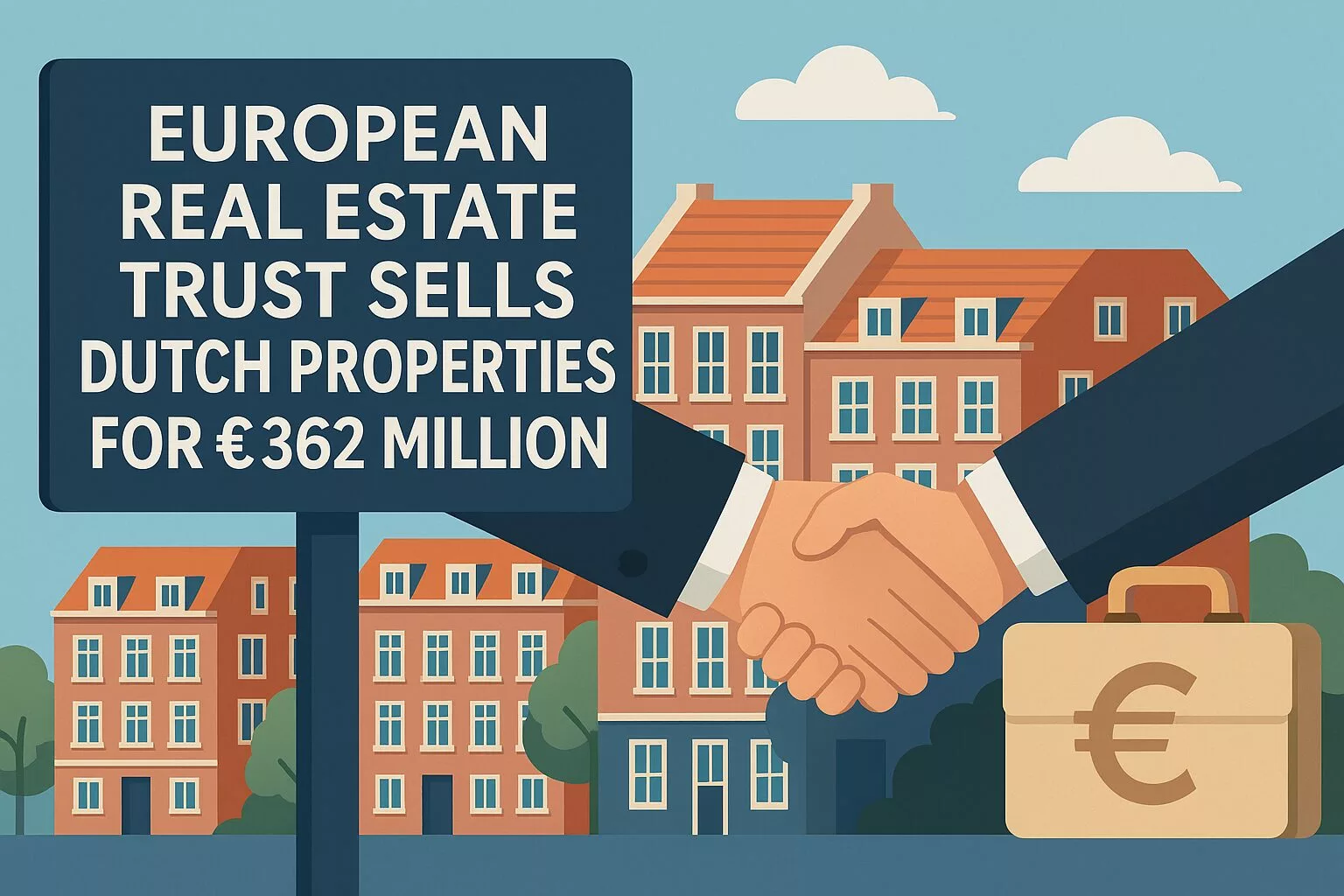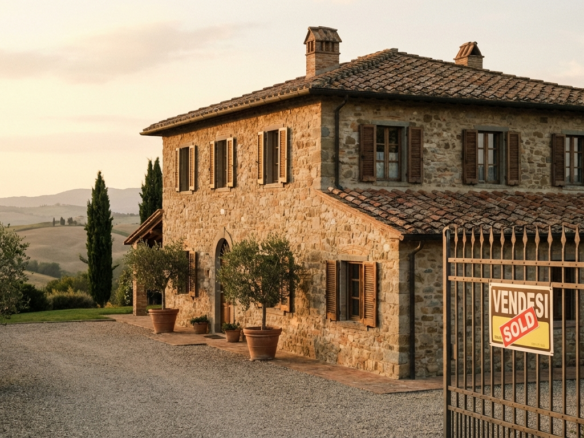In a significant move within the European real estate sector, a prominent real estate trust has recently sold its Dutch properties for a staggering €362 million. This transaction not only highlights the ongoing evolution of the real estate market in the Netherlands but also raises questions about future investment trends in Europe. In this article, we will delve into the implications of this sale, analyze market trends, and provide insights for potential investors.
Get 50% OFF!
Subscribe to our newsletter and enjoy a 50% discount on all listing packages, no strings attached!

Understanding the Sale: Key Details
The sale involved a portfolio of high-quality properties located in prime areas of the Netherlands. The real estate trust, known for its strategic investments across Europe, has decided to divest these assets as part of a broader strategy to optimize its portfolio. This decision reflects a growing trend among real estate trusts to reassess their holdings in light of changing market dynamics.
Why Sell Now?
Several factors contributed to the timing of this sale:
- Market Conditions: The Dutch real estate market has shown resilience, with property values steadily increasing over the past few years. This sale allows the trust to capitalize on favorable market conditions.
- Portfolio Optimization: By selling these properties, the trust can reinvest the capital into emerging markets or sectors that promise higher returns.
- Regulatory Changes: Recent regulatory shifts in the Netherlands may have prompted the trust to reassess its investment strategy, leading to this timely divestment.
The Current State of the Dutch Real Estate Market
The Dutch real estate market has been characterized by strong demand, particularly in urban areas. Factors such as population growth, low unemployment rates, and a stable economy have contributed to this demand. According to recent reports, the Netherlands has seen a surge in both residential and commercial property investments, making it an attractive destination for investors.
Residential vs. Commercial Real Estate
While residential properties have traditionally been a safe investment, commercial real estate is gaining traction. The demand for office spaces, retail locations, and logistics centers has increased, driven by the rise of e-commerce and changing consumer behaviors. Investors are now looking for opportunities that offer a balanced portfolio, combining both residential and commercial assets.
Implications for Investors
The sale of these Dutch properties by the European real estate trust presents several implications for current and prospective investors:
- Investment Opportunities: With the capital generated from this sale, the trust may seek new investment opportunities, potentially in emerging markets or sectors such as green buildings or technology-driven real estate.
- Market Confidence: This transaction signals confidence in the Dutch real estate market, encouraging other investors to consider similar investments.
- Strategic Diversification: Investors should consider diversifying their portfolios to include a mix of asset types, as demonstrated by the trust’s decision to sell and reinvest.
Case Study: Successful Real Estate Investments in the Netherlands
To illustrate the potential of the Dutch real estate market, let’s examine a successful case study. A well-known investment firm acquired a mixed-use property in Amsterdam in 2018 for €25 million. Over the next three years, the firm renovated the property, enhancing its appeal to both residential and commercial tenants. By 2021, the property was valued at €40 million, demonstrating a remarkable return on investment.
This case highlights the importance of strategic renovations and location selection in maximizing property value. Investors should consider similar strategies when evaluating potential acquisitions in the current market.
Future Trends in European Real Estate
As we look ahead, several trends are likely to shape the European real estate landscape:
- Sustainability: There is a growing emphasis on sustainable building practices. Investors are increasingly seeking properties that meet environmental standards, which can lead to higher occupancy rates and rental yields.
- Technology Integration: The integration of technology in real estate management is becoming essential. Smart buildings equipped with advanced technology can attract tenants and improve operational efficiency.
- Remote Work Impact: The rise of remote work is influencing demand for residential properties in suburban areas, as individuals seek larger living spaces away from city centers.
Conclusion: Navigating the Evolving Real Estate Landscape
The recent sale of Dutch properties by a European real estate trust underscores the dynamic nature of the real estate market in Europe. For investors, this presents both challenges and opportunities. By staying informed about market trends and adopting strategic investment approaches, investors can position themselves for success in this evolving landscape.
As the market continues to shift, it is crucial for investors to remain agile and open to new opportunities. Whether you are considering entering the market or looking to expand your existing portfolio, understanding these trends will be key to making informed decisions.
Are you ready to explore investment opportunities in the European real estate market? Join our newsletter for the latest insights and expert advice, or contact us today to discuss how we can help you navigate your real estate investment journey.
For more information on the current state of the real estate market, visit ResearchGate or check out Statista for comprehensive statistics.





Join The Discussion